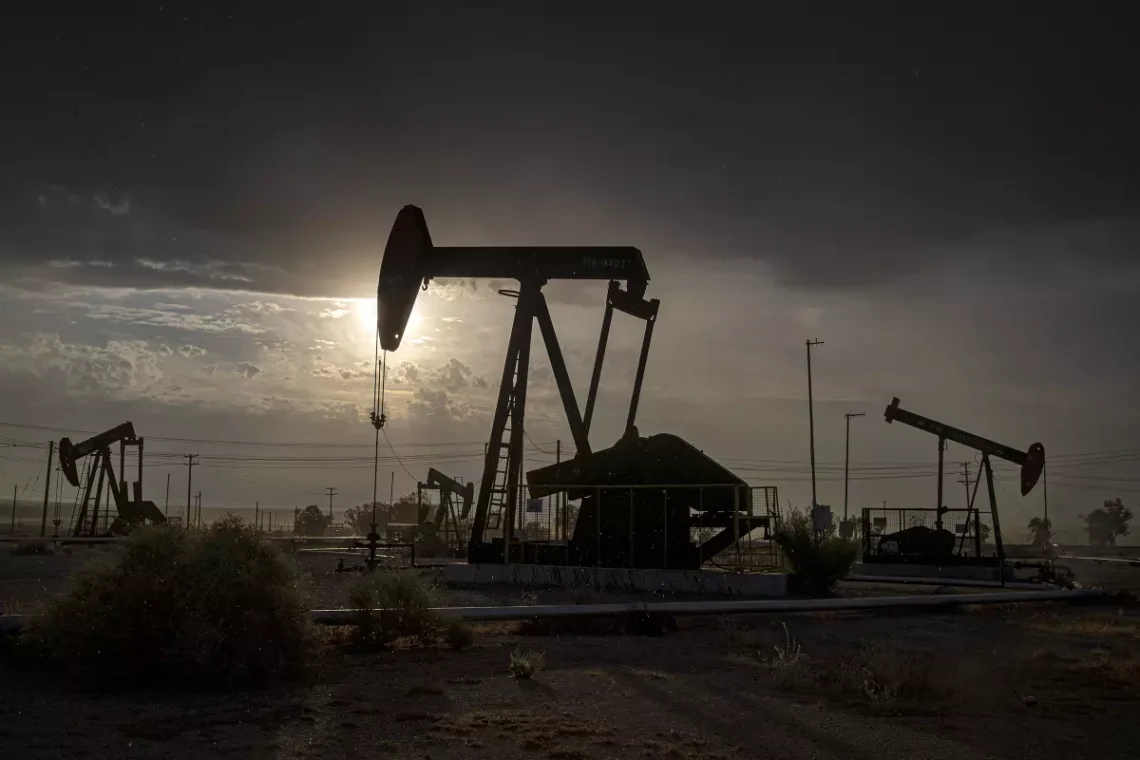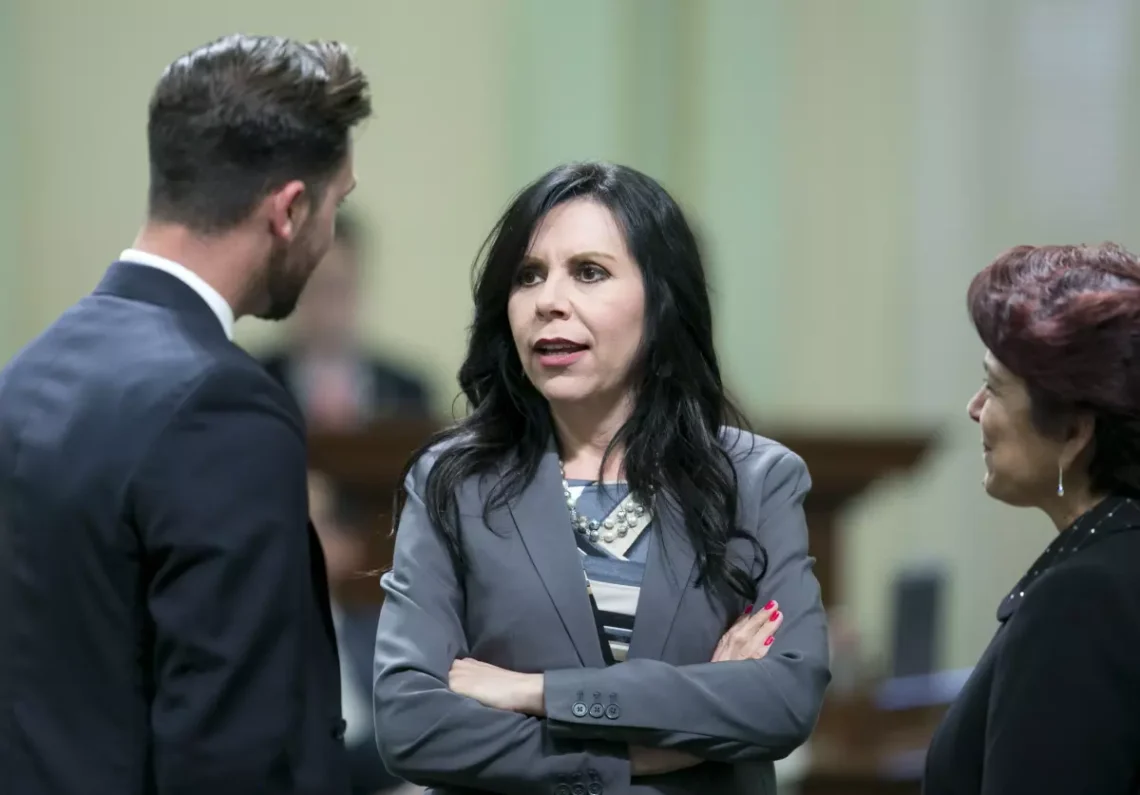How campaign funds and charitable donations help Big Oil wield power in Sacramento
By Laura Fitzgerald and Max Harrison-Caldwell. This story was originally published in The Los Angeles Times on July 29, 2024.

An oil drilling operation in Kern County, Calif. (Irfan Khan / Los Angeles Times)
In the weeks before California lawmakers left Sacramento for their summer recess, more than a dozen environmental bills died amid heavy industry opposition in a Legislature overwhelmingly controlled by Democrats.
One would have held oil companies liable for respiratory illness in children who live near their drilling sites. Another would have asked voters to declare a “right to clean water and air” in California. Others would have divested public employee retirement funds from fossil fuels, or stopped state agencies from purchasing plastic bottles.
Legislators say there were many factors in these bills’ demise — the state’s $45-billion budget deficit, for instance, and several lawmakers being out with COVID-19 just before a key deadline.
But there was another common thread: Industries that opposed these bills have a record of financially supporting the Legislature’s moderate Democrats through a mix of campaign contributions and donations to the politicians’ favored charities.
In the last two election cycles, Chevron spent nearly $10 million on California races, according to data from the secretary of State. Valero spent another $3.9 million, the data show, and Marathon Petroleum spent $3.3 million. A quarter of their donations to legislative candidates went to Democrats and millions more went to committees that support them.
The companies also routinely make charitable donations at the behest of politicians, which can serve as another way to curry favor. Between 2021 and 2023, Chevron, Marathon Petroleum, Calpine, Phillips 66 and the Western States Petroleum Assn. combined gave more than $800,000 to nonprofit groups at the request of state lawmakers, according to data from California’s Fair Political Practices Commission. More than half of this money came from Chevron, which gave more than $440,000.
“What big money in politics does is block legislation. It maintains the status quo. And I’m very willing to say that is not good for California,” said Assemblymember Steve Bennett (D–Ventura), whose bill to limit plastic purchases was among those that died quietly in May when it didn’t come up for a vote by a critical midyear deadline.
In June, Assemblymember Isaac Bryan (D–Los Angeles) shelved a constitutional amendment to establish a right to a clean environment for Californians, vowing to reintroduce an improved version next year. The petroleum association had lobbied against it and the California Chamber of Commerce, whose board includes executives from Chevron and other energy companies, had branded it a “Job Killer,” a label that often impedes support from business-friendly legislators.
Also in June, Sen. Lena Gonzalez (D–Long Beach) announced she wouldn’t advance her bill to divest public employee retirement funds from the fossil fuel industry. SB 252 faced heavy opposition from the oil industry, and multiple moderate Democrats did not support it on the Senate floor. Gonzalez said in a statement that her decision to hold the bill was because of committee amendments that would have weakened it.
In a Legislature generally known as one of the most progressive in the nation, where Democrats hold a supermajority and fighting climate change has been a priority, moderate Democrats can serve as a key swing vote that determines how far left California will go. While environmentalists see them as beholden to the corporations that support their campaigns, business leaders see moderate Democrats as a balancing force in a Capitol where one party has all the control.
“That middle group is really important to policy,” said Kevin Slagle, a vice president of the Western States Petroleum Assn., which lobbies for oil companies at the Capitol.
“They play an important role … in keeping policy going too far one way or the other.”

California Assemblymember Blanca Rubio leads a caucus of moderate Democrats. (Rich Pedroncelli / Associated Press)
Slagle said the petroleum association opposes many environmental bills out of concern that they would raise energy costs. Though California has been aggressive in transitioning to clean energy, it remains one of the nation’s top oil-producing states.
The industry has found an ally in Assemblymember Blanca Rubio (D-Baldwin Park), the leader of the moderate Democrats, a loose bloc of legislators who sometimes side with Republicans to tank progressive ambitions.
Oil companies and trade associations have donated more than $200,000 to Rubio over the last eight years, according to state campaign finance data. She has accepted more oil money in that time than any other current legislator, and leads runner-up Tim Grayson (D-Concord) by about $40,000.



